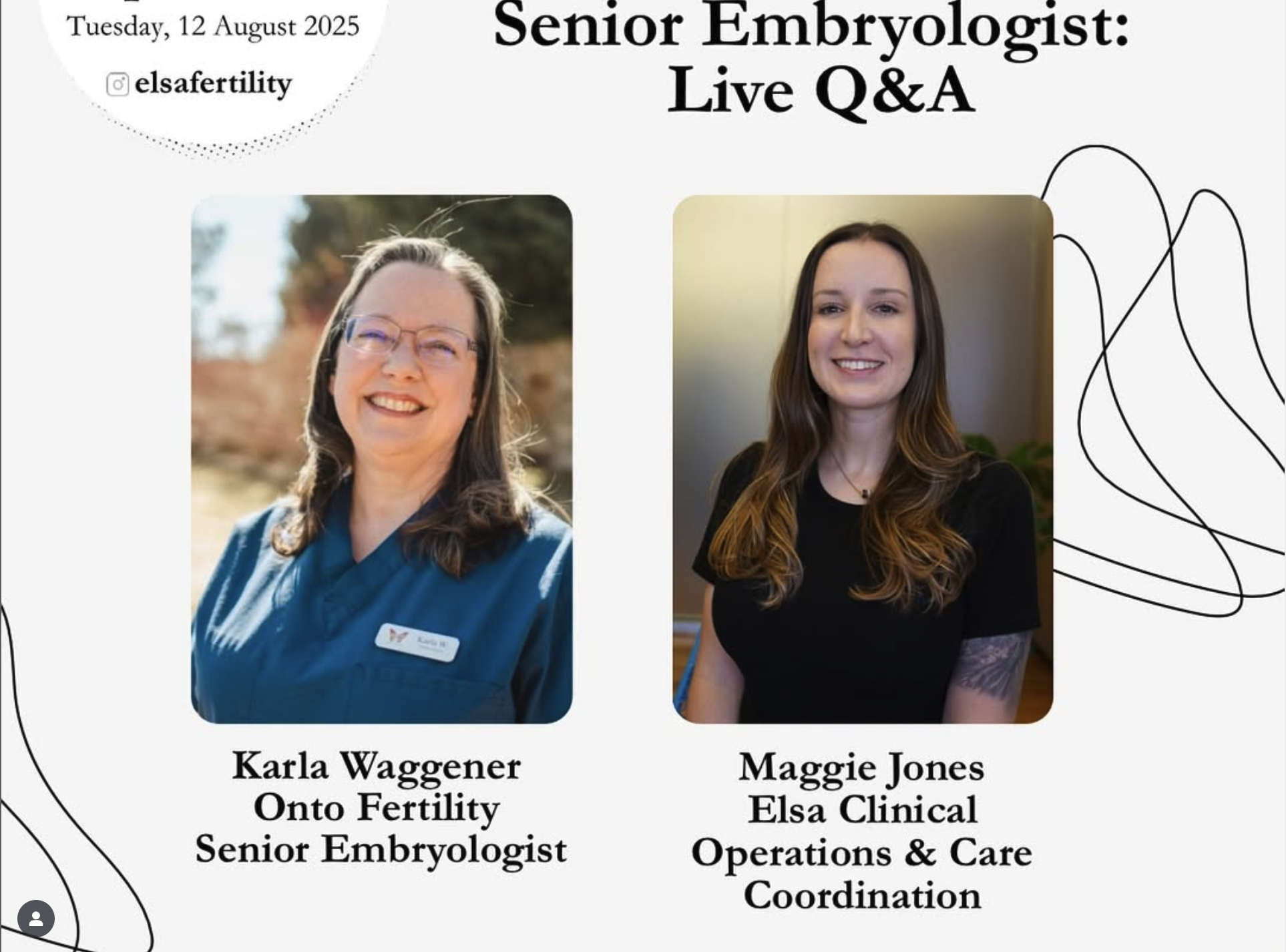Nutrition for Fertility: What to Eat, How to Move, and What Supplements to Take Before IVF or Egg Retrieval

If you’re preparing for an IVF cycle or egg retrieval, you may be wondering: What should I be doing to boost my fertility and support my body through the process?
Lifestyle changes—including diet, exercise, and supplements—can play a key role in optimizing your reproductive health. While there’s no magic food or workout that guarantees success, science-backed strategies can help improve egg quality, hormonal balance, and overall wellness.
Let’s walk through how to prepare your body before and during stimulation—and how to stay on track before embryo transfer.
Pre-Stimulation Phase (At Least 4–6 Weeks Before Medications Start)
This is your prep window—ideally, you'll start making changes at least 4–6 weeks before ovarian stimulation begins. Here’s what to focus on:
Diet: Mediterranean-Style Wins
Numerous studies have shown that a Mediterranean-style diet—rich in vegetables, fruits, whole grains, healthy fats, and lean protein—is associated with better fertility outcomes and embryo quality.
Focus on:
- Colorful vegetables (especially leafy greens, tomatoes, peppers)
- Healthy fats (avocados, nuts, olive oil)
- Lean protein (chicken, eggs, legumes, tofu)
- Whole grains (quinoa, brown rice, oats)
- Low-mercury fish (salmon, sardines, trout—2–3 times/week)
Limit:
- Added sugars, processed foods, and trans fats
- High-mercury fish (swordfish, king mackerel)
- Excess caffeine (limit to <200 mg/day)
Exercise: Move, But Don’t Overdo It
- Aim for: 30 minutes/day, 4–5 days/week of moderate activity (think brisk walking, Pilates, yoga, light strength training)
- Avoid: High-intensity cardio, overtraining, and heavy lifting—especially if you have a low BMI or irregular cycles, as it may impact ovulation.
Supplements: What’s Evidence-Based?
According to ACOG and ASRM, these supplements are considered safe and potentially beneficial when trying to conceive or pre stimulation cycle for retrieval:
- Prenatal Vitamin (with 400–800 mcg of folic acid)
- Coenzyme Q10 (CoQ10) – 200–600 mg daily (may support mitochondrial function in eggs, especially in women over 35)
- Vitamin D – aim for 800–1000 IU/day or test your levels
- Omega-3 Fatty Acids – from diet or 250–500 mg/day DHA + EPA supplement
Talk to your fertility provider before starting any new supplement to ensure it’s appropriate for your medical history.
During the Stimulation Phase (While on IVF Medications)
As you begin hormone injections, your ovaries are working overtime. Now’s the time to prioritize gentle nutrition, hydration, and rest.
Diet: Continue your fertility-friendly diet
- Continue your fertility-friendly diet
- Increase fluid intake (2–3 liters/day) to support ovarian health
- Add protein-rich foods (helps reduce bloating and supports follicle growth)
- Avoid alcohol and reduce high-sodium foods (helps with fluid retention)
Exercise: Gentle movement only
During your stimulation cycle, hormone injections will cause your ovaries to enlarge. This increases the risk of ovarian torsion, particularly with vigorous physical activity. To reduce this risk, all exercise during this time should be gentle and low-impact.
Recommended Activities:
- Light walking
- Gentle stretching
- Yoga
Activities to Avoid:
- Running or jumping
- Intense abdominal exercises
- Sexual activity after Day 4 of stimulation
Post-Retrieval, Pre-Embryo Transfer (Recovery Phase: 1–2 Weeks)
After egg retrieval, your body needs time to recover from stimulation—but you also want to keep your system in balance to prepare for a future transfer.
Diet: Hydration, protein, and anti-inflammatory
- Stick with anti-inflammatory, whole-food nutrition
- Support recovery with hydrating, healing foods: Bone broth, steamed veggies, herbal teas, fruit, light grains
- Continue protein intake to help reduce post-op bloating
Exercise: Light movement until cleared by your provider
- First 3–5 days: Rest, short walks only
- Once cleared by your provider, you can slowly resume light movement
- Still avoid high-intensity workouts until your clinic approves
How Long Should You Stick With These Changes?
- If you’re transferring an embryo soon after retrieval (fresh transfer): Continue the diet and supplement routine through the transfer window and early pregnancy.
- If you’re delaying transfer (freeze-all): Maintain your fertility-supportive lifestyle for at least 4–6 weeks prior to transfer for best results.
Bonus: Lifestyle Tips Beyond Food & Fitness
- Prioritize sleep: aim for 7–9 hours per night
- Practice stress reduction: meditation, acupuncture, or breathwork can support hormonal balance
- Limit alcohol and avoid tobacco or marijuana, all of which can impair fertility
Final Thoughts from Elsa
Your fertility journey is deeply personal—but you don’t have to navigate it alone. Making intentional changes before and during your egg freezing or IVF cycle can help optimize your results, and support your physical and emotional well-being along the way. Explore our Elsa Journey packages or talk with a fertility coordinator today. We’re here to help you plan, prepare, and feel empowered every step of the way.
References
American College of Obstetricians and Gynecologists (ACOG). (n.d.). Nutrition During Pregnancy. Retrieved from https://www.acog.org
American Society for Reproductive Medicine (ASRM). (n.d.). Lifestyle and Fertility. Retrieved from https://www.asrm.org
Articles Recommended for You
Modern, personalized, effortless
Join our mailing list to stay informed with the latest in fertility.




